Student mobility
The ERASMUS program provides opportunities for studying at various European higher education institutions. The period for student mobility for studies is regulated by the European Commission (a minimum of 2 months and a maximum of 12 months) and can be completed within one academic year.
The ERASMUS program is particularly attractive for EU students as it offers access to European universities without the need to pay tuition fees, while also creating opportunities for cultural and social exchange. Student mobility is carried out based on pre-established bilateral agreements between the sending and receiving universities. For this purpose, both universities must hold a valid ERASMUS University Charter.
All students at VUZF University (undergraduates, master"s students, and PhD candidates) are eligible to participate in ERASMUS mobility for studies, provided that they:
Are enrolled in a program at VUZF at the time of application (either full-time or part-time) and have successfully completed at least two semesters (for bachelor"s degree students) or at least one semester (for master"s or doctoral students);
Have proficiency in the foreign language in which they will study at the receiving university;
Have a minimum average grade of 4.50 from the last two semesters.
Student selection is conducted through a competitive process organized by a specially appointed Selection Committee. The competition is held for the approved mobility slots for the respective academic year. These slots are funded by the Human Resource Development Center. Each year, by the end of November, interested students can submit their documents and participate in the ranking process for the approved slots corresponding to their degree program and field of study at VUZF. After the ranking, successful candidates will be notified. They must then complete the necessary documentation to carry out the mobility, including the Learning Agreement, an individual ERASMUS grant agreement, and the required application forms for the host university abroad.
Students are entitled to participate in the ERASMUS program up to 12 months for one studying cycle.
_______________________________
Additional support for participants with fewer opportunities
The Erasmus+ Program is committed to providing equal opportunities for all young people, particularly those with fewer opportunities, by offering special support to ensure they can participate in international mobility and learning activities. The support is designed to help overcome barriers and provide inclusive access to the benefits of the program.
1. Financial Support and Grants
Participants with fewer opportunities can receive extra financial support to cover the additional costs of participation. This support helps to overcome the economic, geographical, or social barriers that might prevent individuals from taking part in Erasmus+ activities. The financial aid is designed to ensure that travel, accommodation, and participation costs do not prevent young0 people from marginalized or disadvantaged backgrounds from engaging in Erasmus+ projects.
Increased grant rates: For participants from disadvantaged backgrounds, higher grant amounts are available to cover additional costs.
Travel support: Travel grants can be provided for participants to cover travel expenses, particularly for those who live in remote areas or come from less economically developed regions.
Additional allowances: There are also allowances to cover participation costs, language courses, and any extra support needs (e.g., accessibility for participants with disabilities).
2. Tailored Support Services
To ensure that participants with fewer opportunities can fully participate and benefit from Erasmus+ projects, tailored support services are offered. These services may include:
Pre-departure preparation: Special assistance is given to help participants prepare for their experience abroad, including language support, cultural orientation, and logistics training to help them feel confident and ready.
On-the-ground assistance: Support during the mobility phase, such as helping with accommodation, providing mentors or buddies, and ensuring that participants can access any required services.
Post-event support: After the mobility experience, participants can receive additional guidance on how to recognize and use their new skills, including the use of tools like the Youthpass certificate, which helps participants document and validate their learning achievements.
3. Special Needs and Accessibility
For participants with disabilities or special needs, Erasmus+ offers additional support to ensure that they can fully participate in mobility activities. This includes:
Individualized support: If a participant requires additional support (e.g., sign language interpretation, physical accommodations, accessible transport), this is provided to ensure they can participate on an equal footing with others.
Inclusive practices: Erasmus+ encourages organizations to provide an inclusive environment and make any necessary adjustments to activities to meet the needs of participants with special requirements, whether physical, emotional, or educational.
4. Types of Participants with Fewer Opportunities
Erasmus+ defines participants with fewer opportunities as individuals facing one or more of the following challenges:
Economic obstacles: People from lower socio-economic backgrounds who face financial challenges that may prevent them from accessing international mobility opportunities.
Educational difficulties: Individuals with fewer educational opportunities, including early school leavers, low-skilled individuals, or those with fewer qualifications.
Disability: People with physical, mental, or sensory impairments that could impact their ability to access mainstream activities and programs.
Geographical obstacles: Young people living in remote, rural, or isolated areas that may lack access to information or networks, making it difficult for them to engage in Erasmus+ activities.
Cultural differences: Individuals from minority ethnic backgrounds, migrants, or refugees who may face social and cultural barriers to participation.
Health issues: Those who experience physical or mental health challenges that affect their daily lives and may prevent them from participating in traditional programs.
Mentoring and buddy systems: Systems where more experienced participants, youth workers, or mentors help guide and support those with fewer opportunities throughout the duration of the project.
5. How to Access Special Support
To access the special support offered to participants with fewer opportunities, with their application for international mobility applicants (whether individuals or organizations) must provide documentation or a description of the barriers they face and explain how the additional support will enable them to participate in Erasmus+ activities.


